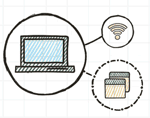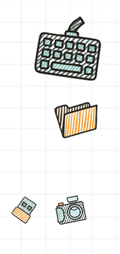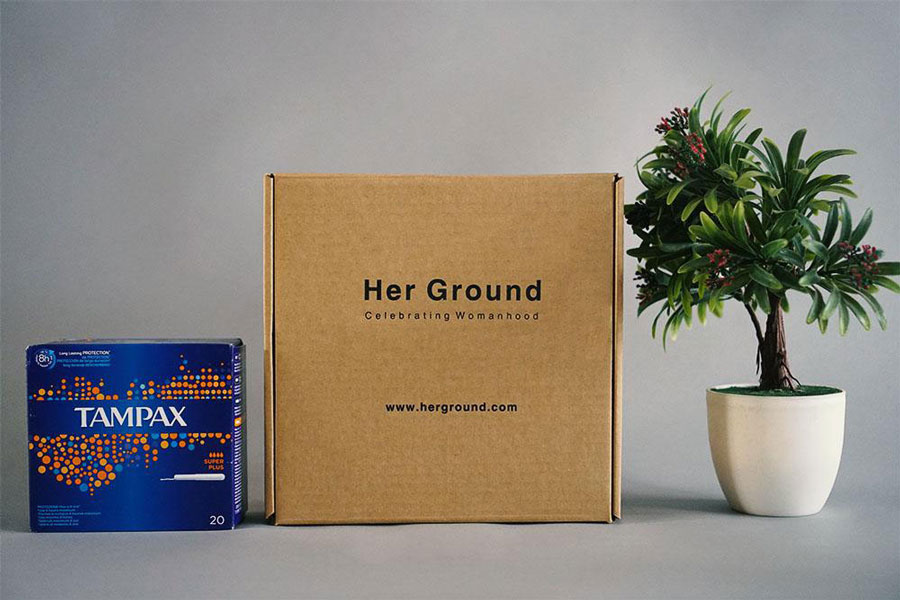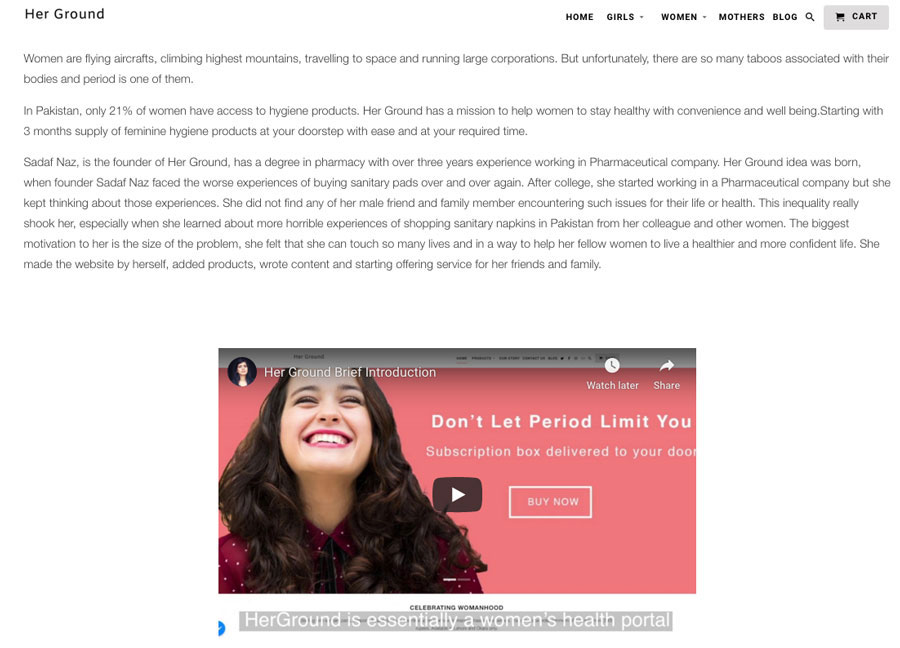Celebrating Womanhood
By Zoha Liaquat | Profile | Technology | Published 6 years ago
 Over the past decade or so the world has witnessed the ascendancy of innovative businesses that use technology-oriented solutions to solve everyday problems and cater to pre-existing markets in new and more efficient ways. What distinguishes these enterprises from the older and more established tech companies is how they are designed for rapid short-term growth, relying primarily on the internet to access large markets and scale quickly. Hence the term Startup, one that reflects the ease with which these low-cost businesses can be started and the speed with which they are designed to grow. They can range from car-hailing applications you can download on your mobile, online real estate and automobile agents, to companies whose online applications help you to improve your brain functions.
Over the past decade or so the world has witnessed the ascendancy of innovative businesses that use technology-oriented solutions to solve everyday problems and cater to pre-existing markets in new and more efficient ways. What distinguishes these enterprises from the older and more established tech companies is how they are designed for rapid short-term growth, relying primarily on the internet to access large markets and scale quickly. Hence the term Startup, one that reflects the ease with which these low-cost businesses can be started and the speed with which they are designed to grow. They can range from car-hailing applications you can download on your mobile, online real estate and automobile agents, to companies whose online applications help you to improve your brain functions.

Whichever market a successful startup decides to target, it usually acts as a highly disruptive force, significantly altering the way businesses and consumers interact. Take for example the online real estate portal Zameen.com which provides a unified platform for buyers and sellers. Buyers can search for property in their preferred price range and location via the website while individual sellers and real estate agencies can directly access buyers by posting listings online.

When one thinks of the major hotbeds for tech-based startups in Asia, Pakistan rarely comes to mind, with the Indian and Chinese tech scenes soaking up most of the limelight. Although Pakistan has yet to acquire the reputation, it does not lack for substance. As hiring among larger companies has plateaued, recent years have seen intrepid Pakistanis strike out on their own and capitalise on the rapid growth of online access in Pakistan. It would be no overstatement to claim that Pakistan is currently experiencing a boom in the startup arena; dozens have gone on to become major companies while more still have been newly conceived and are still in the elementary stages of their development.
Despite the abundance of startups in the local market, access to capital remains a significant obstacle. Foreign investors remain wary of investing in Pakistan due to its poor infrastructure and general instability, while locally investors prefer to park their cash in safer options such as real estate. However, given the tremendous potential for successful startups to create jobs and deliver services in a more cost-effective manner, the public sector has taken notice. The Government of Pakistan’s Planning Commission recently allocated Rs. 2.3 billion to a startup fund, hoping to give local startups the financing they need to properly launch their services.
With a more hospitable environment towards entreprenuership taking shape and an increasing number of young Pakistanis willing to take the risks of launching their own firms, startups are poised to reshape the economic landscape of Pakistan in the years to come.
– Sami Subhani

Sadaf Naz, much like a sizable section of the women living in Pakistan, grew up in a traditional household, where shame and stigma around periods were deeply ingrained, and conversations about menstrual hygiene non-existent. When Sadaf got her first period, she confused it with cancer, and when she approached her mother, she was given a cloth pad to help deal with the blood. “My mother didn’t even tell me I would be getting my period every month,” says Naz, as she laughs shyly while recalling the incident. It wasn’t until she read a chapter about reproduction in her 9th grade biology textbook that Naz actually realised periods were a naturally occurring biological phenomena for all women.
In addition to being largely unaware about menstrual hygiene, Naz did not know about the existence of sanitary pads until she went to Faisalabad to study pharmacy. Year after year, she learned more about menstrual health, and through it all she noticed that that the cultural taboo around periods was the same across the board, in her hometown Okara, in Faisalabad, and in Lahore – where she worked for a pharmaceutical company. “Whenever I would go to the store to buy pads, the cashier would either try to make me uncomfortable or sneeringly look at me almost as if I was asking for an illegal substance,” says Naz.
In Lahore, Naz had the opportunity to attend a conference where she saw businesswomen in all their glory. Inspired by the great work Pakistani women were doing and encouraged by the entrepreneurs at the event, she began her research to start a venture of her own. That was 2014, when Naz was still short on funds, and so she continued her job for three more years, resigning only after she gathered the money to start her own website to increase accessibility to sanitary pads and other products for women. Between February 2017 and September 2017, Naz took a variety of courses in website design, content writing and photography, launching Her Ground right after. At the time Her Ground delivered sanitary pads in Lahore and Okara. “Initially we received around 3 to 4 orders in a week and the rider used to come in at the end of every week to make those deliveries,” says Naz. Soon after, Naz filled in an application for induction in Plan 9, an incubation centre in Lahore. “Induction in Plan 9 made it easy for us to scale up, we were given a stipend and the opportunity to hire,” says Naz.

In just a few months, Naz and her team of five have launched operations in more than 17 cities across Pakistan. Currently Her Ground has three categories on the website; girls, women and mothers. Each category offers a variety of products, ranging from sanitary pads to contraceptives to delivery kits. But delivering female hygiene is not all Naz does at Her Ground. Every month, Naz sets aside 5 per cent of the sales profits to hold awareness workshops for adolescent girls in government schools across Punjab. “We sometimes face a lot of problems from the school administration and have to run around from one government office to another to seek permissions to hold these workshops,” says Naz when speaking about the challenges of running Her Ground.
An environment conscious entrepreneur, Naz understands the downside of using sanitary pads. Currently she is working with her team on research and development of a bio-degradable sanitary pad that would both be a convenient and eco-friendly option for women to manage their periods, “If all goes according to plan, we shall be launching our product in June 2020,” she says.
A journalism graduate, Zoha's core areas of interest include human and gender rights issues, alongside which she also writes about gender representation in the media and its impact on society.


